- There are no more items in your cart
- Shipping Calculated at checkout
-
Sub-Total (inc. VAT)
£0.00
Need Help?
Zinc Silicate Primers
Zinc silicate primers are highly specialised, inorganic coatings designed to protect metal surfaces, particularly steel, from corrosion. Comprising zinc dust and silicate binders, these primers provide excellent corrosion resistance through sacrificial protection. When applied to metal surfaces, they create a durable, heat-resistant, and long-lasting layer that is highly effective in harsh industrial environments, such as marine, petrochemical, and offshore sectors. Known for their exceptional bond strength and resistance to mechanical damage, zinc silicate primers are widely used in applications where performance under extreme conditions is critical.
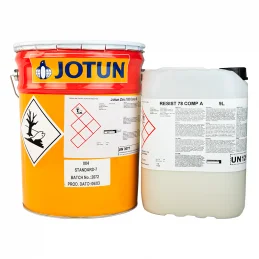
Jotun Resist 78
Jotun Resist 78 is a solid foundation for the optimal performing coating system in the toughest exposures. Specially designed as a primer in a coating system where extended durability is required. Click here for more Jotun products.
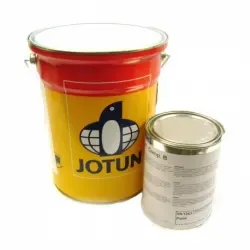
Jotun Resist 86
Jotun Resist 86 is a two component moisture cured inorganic zinc ethyl silicate coating that is a fast curing, very high zinc dust containing product. Specially designed by Jotun as a primer in coating systems where extended durability is required. It provides a solid foundation for the optimal performing coating system in the toughest...
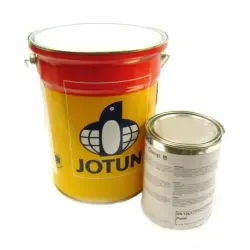
Jotun Muki Z 2001
An all-round excellent choice for the temporary protection of steel exposed to highly corrosive environments. Muki Z 2001 from Jotun has a solid track record and a reputation built on satisfied customers in a range of industries and countries worldwide. Jotun Muki Z 2001 is a two component inorganic low zinc moisture curing zinc ethyl...
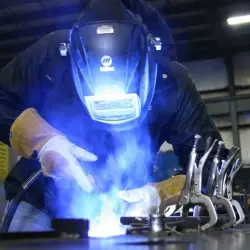
International Interplate 937
International Interplate 937 is a two pack, heat resistant zinc silicate shop (pre-construction) primer providing good corrosion protection (even after heating up to 800°C (1472°F), with minimum production of zinc salts. Suitable for high speed welding and cutting with excellent resistance to damage caused by welding, gas cutting and fairing.
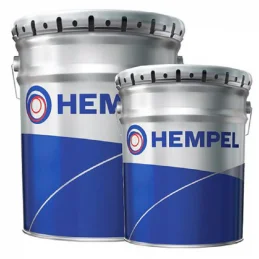
Hempel Shopprimer ZS 15890
Hempel Shopprimer ZS 15890 is a two-component, solvent-borne zinc ethyl silicate shopprimer, designed for automatic spray application. Especially suited, where welding and gas-cutting properties are of importance. For short to medium-term protection of abrasive blast cleaned steel plates and other structural steel during the storage,...
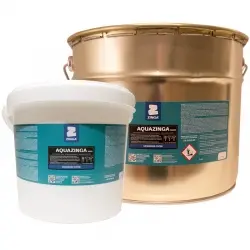
Zinga Aquazinga
Aquazinga, a two-pack anti-corrosion system providing cathodic protection to ferrous metals, and can be used as an alternative to hot-dip galvanisation or metallisation. Designed to withstand high temperatures (up to 600°C) and corrosive environments and severe conditions such as ballast tanks, turbine exhausts and high-heat pipelines....
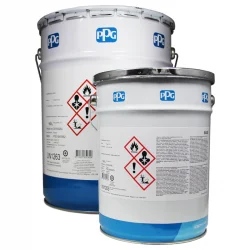
PPG SigmaWeld 199
PPG SigmaWeld 199 is a two-component, moisture-curing low zinc (ethyl) silicate prefabrication primer that is suitable for automatic application on shot blasted steel plates. Good cutting and excellent welding properties, including MIG/MAG welding in various positions (either automatic or manual welding), fast-drying and low fume release are...
Need Help?
Need Help?
Zinc silicate primers have become indispensable in industrial sectors where metal surfaces, especially steel, require the highest levels of protection against corrosion. These primers are categorised as inorganic zinc silicate primers, known for their exceptional durability and performance in harsh environmental conditions. Comprising zinc dust and a silicate binder, they create a dense, impervious film that provides excellent corrosion protection through sacrificial action. When the metal substrate is exposed to moisture, the zinc in the primer corrodes preferentially, thus protecting the underlying metal from oxidation.
Zinc silicate primers are often favoured in industries where aggressive environmental factors, such as saltwater, chemicals, and extreme temperatures, can severely degrade unprotected metal. They are typically used in marine, petrochemical, and offshore applications due to their robustness and resistance to heat, abrasion, and mechanical stress. The primer’s superior adhesion to steel and long-lasting protection make it an essential component of complex coating systems designed for high-performance environments.
Features and Benefits of Zinc Silicate Primers
One of the primary reasons for the widespread use of zinc silicate primers is their unmatched capability to protect steel structures from corrosion. The following features and benefits make them an ideal choice for a variety of metal substrates:
- Sacrificial Protection: Zinc silicate primers are known for their galvanic protection properties. When applied, the zinc particles within the coating sacrifice themselves by corroding before the steel substrate does. This process delays the onset of rust and extends the lifespan of the metal surface, especially in environments where moisture and oxygen are present.
- High Temperature Resistance: These primers can withstand extreme heat, making them suitable for use in environments with elevated temperatures. This is particularly beneficial for facilities involved in refining, chemical processing, and power generation, where metal surfaces are often exposed to high thermal stress.
- Strong Adhesion: Zinc silicate primers form a highly adhesive bond with metal surfaces, particularly steel, which is essential for preventing flaking or peeling over time. The silicate binder provides a durable link between the zinc particles and the substrate, ensuring that the protective layer remains intact even under harsh conditions.
- Abrasion and Impact Resistance: The mechanical toughness of inorganic zinc silicate primers is another significant advantage. These coatings are designed to withstand physical impacts, such as abrasive forces, that would otherwise damage less resilient coatings. This makes them suitable for use in environments like shipping yards or offshore platforms, where equipment and structures are subject to frequent mechanical wear.
- Low Solvent Emissions: Zinc silicate primers are low in volatile organic compounds (VOCs), which makes them more environmentally friendly compared to other types of protective coatings. This is an important consideration for industries that need to comply with strict environmental regulations.
- Compatibility with Topcoats: In many applications, zinc silicate primers act as a base layer in a multi-coat system. They provide an excellent foundation for subsequent coats, such as epoxy or polyurethane, enhancing the overall protective properties of the coating system.
- Excellent Weatherability: Due to their inorganic composition, these primers exhibit superior resistance to ultraviolet (UV) degradation and other forms of weathering. Structures coated with zinc silicate primers experience less fading and degradation over time, even when exposed to sunlight and fluctuating weather conditions.
Common Uses of Zinc Silicate Primers
Marine Structures
Zinc silicate primers are indispensable in the maritime sector, where steel surfaces face continuous exposure to harsh conditions such as saltwater, intense UV radiation, and wind. Ships, oil tankers, and offshore platforms all rely on these primers to protect their metal surfaces from the aggressive corrosive effects of the marine environment. Saltwater is highly conductive and accelerates the corrosion of steel, but zinc silicate primers offer galvanic protection, sacrificing the zinc in the coating instead of allowing the steel to corrode. In shipbuilding and marine maintenance, these primers are applied to ship hulls, decks, and other exposed areas, ensuring that the structure remains free from rust and other forms of corrosion, thus enhancing the longevity and performance of vessels.
Moreover, offshore oil platforms and wind turbines, which operate far from the coast, face not only salt spray but also mechanical stress from waves, wind, and machinery. Inorganic zinc silicate primers are commonly chosen because of their ability to withstand not only corrosion but also the wear and tear caused by these physical forces. The high mechanical toughness of these primers is a crucial factor in ensuring that marine structures remain operational for extended periods with minimal maintenance.
Petrochemical Industry
In the petrochemical industry, steel surfaces are regularly exposed to harsh chemicals, gases, and elevated temperatures. Pipelines, reactors, storage tanks, and other critical infrastructure are all susceptible to both chemical attack and corrosion. Zinc silicate primers are widely used in this sector due to their excellent chemical resistance and heat tolerance. The sacrificial protection offered by the zinc particles ensures that even in the presence of corrosive substances such as crude oil, gas, and solvents, the underlying steel remains intact.
For example, refineries process hydrocarbons at high temperatures, and the equipment used must be coated with materials that can endure both the heat and the corrosive nature of the chemicals involved. Zinc silicate primers are applied to these surfaces to protect against corrosion while also withstanding the high temperatures generated during refining processes. This makes them particularly suitable for pipelines, chimneys, and storage tanks that are constantly exposed to extreme conditions. The heat resistance of zinc silicate primers - up to temperatures of 400°C - ensures that the integrity of the coating remains stable, even when subjected to fluctuating or extreme thermal conditions.
Industrial Facilities and Manufacturing Plants
Manufacturing plants and industrial facilities use a significant amount of steel in the construction of equipment, machinery, and structures. These environments often involve exposure to corrosive materials, humidity, and mechanical abrasion, which can quickly degrade unprotected metal surfaces. Zinc silicate primers are extensively used in these settings to provide both corrosion resistance and mechanical protection.
For example, in the heavy machinery industry, large steel structures such as cranes, conveyer belts, and industrial presses are constantly in use, subjected to friction, impacts, and abrasion from the manufacturing process. Zinc silicate primers are used to protect these surfaces not only from corrosion but also from mechanical wear. The durable, hard-wearing nature of the coating ensures that machinery remains in good working condition for longer periods, reducing the need for frequent repairs or replacements.
Another common use is in structural steelwork within large industrial plants, where humidity, chemicals, and other environmental factors can accelerate corrosion. In these cases, zinc silicate primers serve as a vital protective layer, extending the lifespan of the steel and ensuring the structural integrity of the plant.
Bridges and Highways
Bridges, highways, and other large infrastructure projects frequently use zinc silicate primers as a protective coating for steel elements. These structures are exposed to a variety of environmental stressors, including rain, salt from road de-icing operations, and airborne pollutants, all of which contribute to corrosion. Steel bridges, in particular, are highly vulnerable to rust and other forms of corrosion, which can weaken their load-bearing capacity over time.
Zinc silicate primers are applied to steel girders, beams, and other structural components of bridges to ensure long-lasting protection against rust. The inorganic nature of these primers means that they are highly resistant to weathering and UV degradation, making them ideal for outdoor environments where exposure to the elements is constant. Furthermore, because many bridges are located near water or in coastal regions, the sacrificial protection provided by zinc ensures that the steel remains corrosion-free even in these high-humidity, saline-rich environments.
In addition to bridges, zinc silicate primers are commonly used in the construction of highway structures such as guardrails, lampposts, and overhead sign supports, all of which are made from steel and require corrosion protection to ensure safety and longevity.
Power Plants and Energy Infrastructure
The power generation industry, including both fossil fuel and nuclear power plants, utilises large amounts of steel in its construction and operational components. Boilers, cooling towers, chimneys, and structural steel all require protection from the extreme conditions typically found in these facilities. Zinc silicate primers are particularly well-suited for use in power plants due to their ability to withstand high temperatures and corrosive environments.
In fossil fuel power plants, zinc silicate primers are applied to metal surfaces that are exposed to flue gases, which contain sulfur compounds and other corrosive elements. The heat resistance of these primers ensures that the coating remains intact even when temperatures reach several hundred degrees Celsius. This makes them ideal for use on chimneys, ductwork, and other high-heat applications within the plant.
In nuclear power plants, where safety is of paramount importance, zinc silicate primers are often applied to structural steel and other critical components to ensure long-term corrosion resistance. The ability of these primers to provide reliable protection in harsh conditions helps to minimise the risk of metal failure, thus enhancing the overall safety of the facility.
Railways and Transportation
The railway industry is another sector where zinc silicate primers play a critical role. Steel components such as tracks, bridges, and supporting infrastructure must withstand constant exposure to environmental factors like rain, humidity, and pollutants, all of which can cause rapid corrosion. Zinc silicate primers are commonly applied to these steel surfaces to provide the protection needed to maintain the integrity of the rail infrastructure.
In particular, rail bridges and other elevated structures benefit greatly from the use of zinc silicate primers. These bridges often pass through areas with high humidity or near bodies of water, where the risk of corrosion is significantly increased. The sacrificial protection offered by zinc ensures that the steel remains structurally sound, reducing the risk of catastrophic failure and minimising maintenance costs.
In addition to protecting the infrastructure, zinc silicate primers are also used on rail cars and locomotives, especially those that transport corrosive materials or operate in challenging environments. The high mechanical strength and resistance to abrasion provided by the primer ensure that the steel surfaces of the rail cars remain intact despite frequent contact with abrasive materials and exposure to the elements.
Wind Turbines and Renewable Energy Infrastructure
Renewable energy infrastructure, particularly wind turbines, frequently incorporates zinc silicate primers in the protection of steel components. Wind turbines, which are often located offshore or in coastal areas, face constant exposure to saltwater, high winds, and harsh weather conditions. The steel towers and foundations of these turbines are particularly vulnerable to corrosion, and zinc silicate primers offer the protection needed to ensure the long-term durability of these structures.
Offshore wind farms, in particular, benefit from the corrosion-resistant properties of zinc silicate primers. The constant exposure to saltwater accelerates the corrosion process, but the sacrificial action of the zinc protects the steel and prevents rust from forming. This extends the operational life of the wind turbines, reducing the need for costly repairs and downtime.
Onshore wind turbines also face environmental challenges such as high winds, rain, and UV exposure. The UV resistance of zinc silicate primers ensures that the coating does not degrade over time, even with constant sun exposure, while their abrasion resistance makes them ideal for protecting steel components that are subjected to mechanical stress from wind and vibration.
Conclusion
Across a wide range of industries, zinc silicate primers provide an essential protective layer for steel structures, machinery, and infrastructure. Their superior corrosion resistance, mechanical durability, and heat tolerance make them the preferred choice for applications in marine, petrochemical, industrial, and energy sectors. These primers help to extend the lifespan of steel, reducing maintenance costs and improving the safety and reliability of critical infrastructure. For advice on product selection and compatibility with specific environments, customers are encouraged to contact technical support teams to ensure optimal results.
FAQs
What is the difference between inorganic zinc silicate primers and organic zinc-rich primers?
Inorganic zinc silicate primers use a silicate binder, which provides better heat resistance and durability than organic zinc-rich primers. Organic primers use an organic binder, such as epoxy, which can offer flexibility but lacks the high-temperature resistance and long-term durability of inorganic silicates.
Can zinc silicate primers be used on non-ferrous metals?
Zinc silicate primers are specifically designed for ferrous metals, such as steel and iron. They do not provide the same level of protection when used on non-ferrous metals like aluminium or copper. For non-ferrous metals, alternative primers should be considered.
What surface preparation is required before applying zinc silicate primers?
Proper surface preparation is critical for the effective performance of zinc silicate primers. Typically, abrasive blasting to near white metal is recommended to ensure optimal adhesion and corrosion protection. Any contaminants, including rust, grease, or old paint, should be completely removed before application.
Are zinc silicate primers resistant to chemicals?
Yes, zinc silicate primers offer good chemical resistance, particularly to solvents and acids. This makes them suitable for use in petrochemical plants and other industrial environments where exposure to chemicals is frequent.
Can these primers be top-coated with other products?
Yes, zinc silicate primers are often used as a base coat in multi-layered systems. They are compatible with a variety of topcoats, including epoxies and polyurethanes, which enhance their protective properties and provide additional resistance to environmental factors.
How long does a zinc silicate primer last?
When applied correctly, zinc silicate primers can provide long-lasting protection for decades, especially in controlled environments. However, the actual lifespan can vary depending on the specific application, exposure conditions, and maintenance.
Is a curing process necessary for zinc silicate primers?
Yes, curing is a crucial part of the application process. Zinc silicate primers cure through a chemical reaction with moisture in the air, which helps to solidify the bond between the zinc and the silicate binder. Proper curing conditions, such as humidity levels, must be maintained to ensure the best performance.
Are zinc silicate primers heat-resistant?
Yes, zinc silicate primers are highly resistant to heat and can withstand temperatures up to 400°C or more, depending on the formulation. This makes them ideal for use on surfaces exposed to high heat, such as boilers, chimneys, and refinery equipment.
Can zinc silicate primers be applied to previously coated surfaces?
Zinc silicate primers should ideally be applied to clean, bare metal surfaces. If an existing coating is present, it must be completely removed, as zinc silicate primers do not adhere well to old or compromised coatings.
Where can I purchase zinc silicate primers?
Specialist zinc silicate primers are available from a variety of industrial paint suppliers. It is recommended to contact technical support teams to ensure compatibility with specific projects and environmental conditions.
